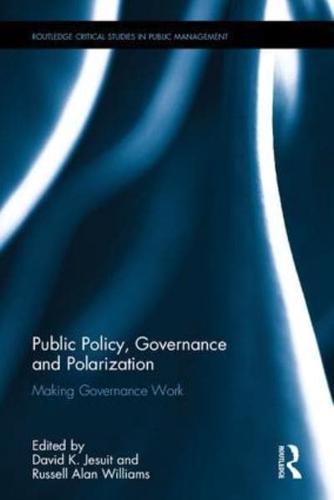Publisher's Synopsis
Polarization is widely diagnosed as a major cause of the decline of evidence-based policy making and public engagement-based styles of policy making. It creates an environment where hardened partisan viewpoints on major policy questions are less amenable to negotiation, compromise or change. Polarization is not a temporary situation - it is the "new normal."
Public Policy, Governance and Polarization seeks to provide a theoretical foundation for scholars and policy makers who need to understand the powerful and often disruptive forces that have arisen in Europe and North America over the past decade. Academics and practitioners need to better understand this growing trend and to find ways in which it may be managed so that policy solutions to these threats may be developed and implemented.
Researchers and future policymakers in fields such as public administration, public management and public policy need to recognise how institutional design, corporatist interest group systems and different pedagogical approaches may help them understand, discuss and work beyond policy polarization. Edited by two leading political science scholars, this book aims to begin that process.












